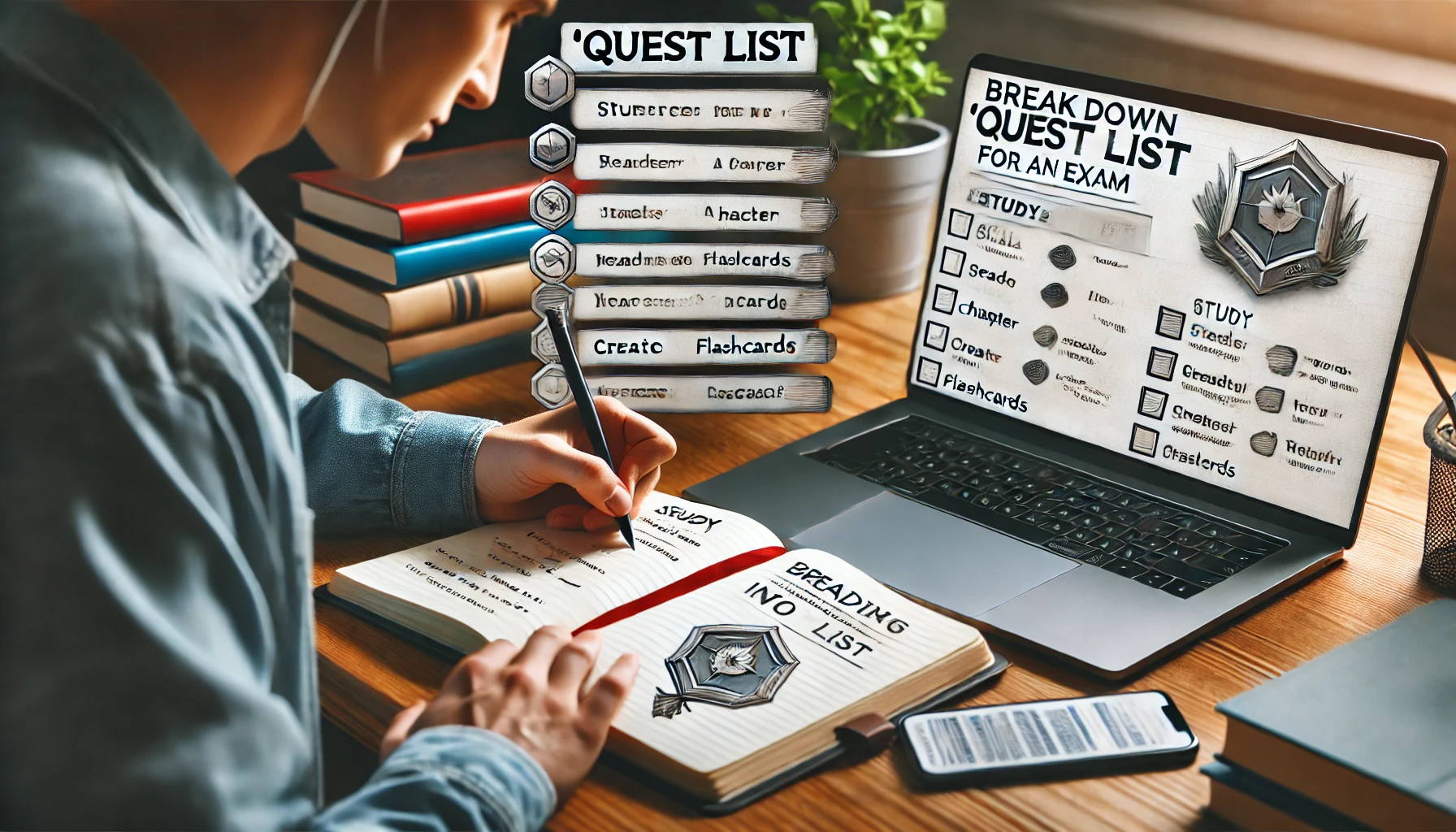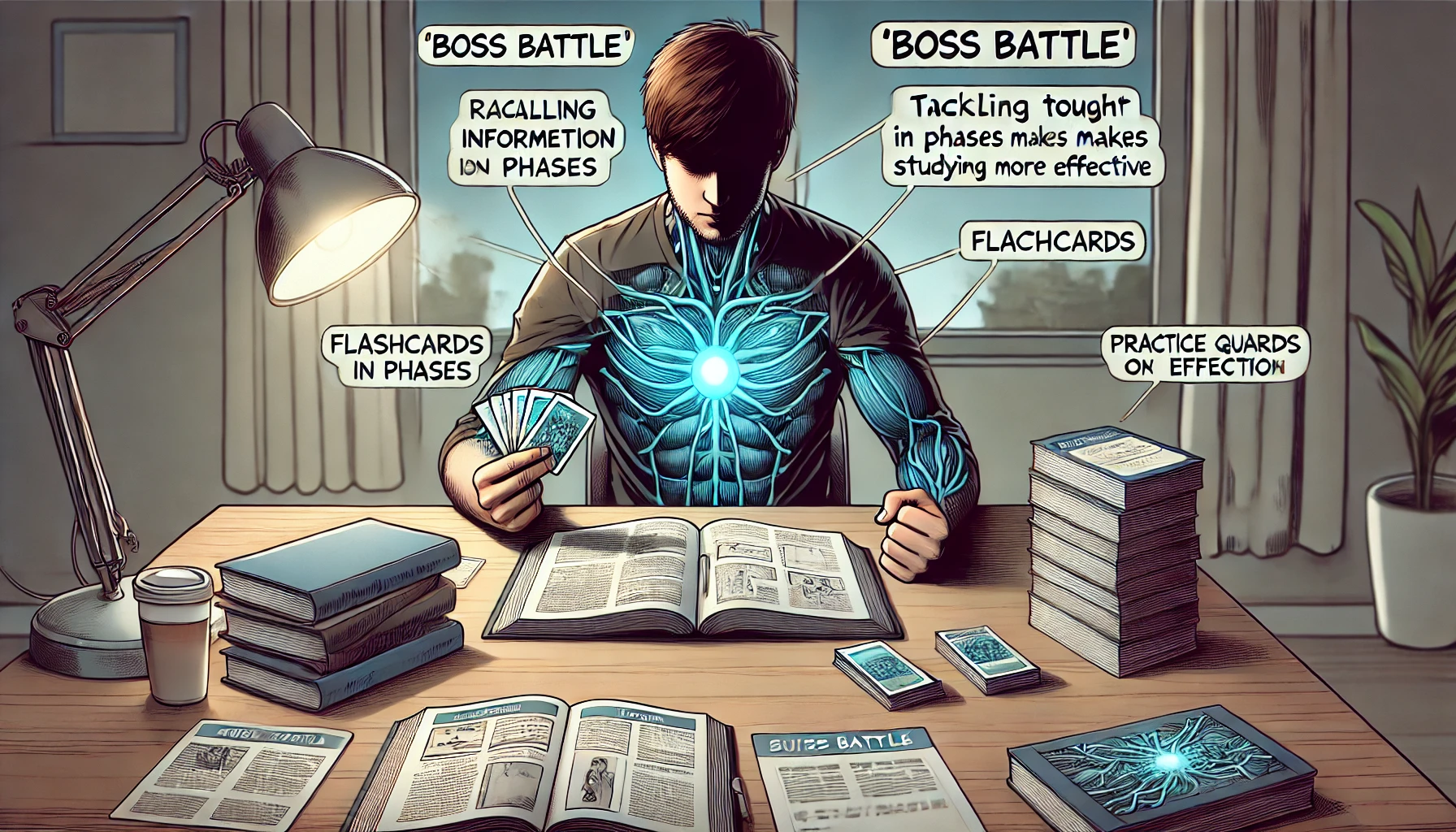Staring at a dense textbook chapter can feel less like an enlightening journey and more like trying to watch paint dry. Procrastination becomes your best friend, the siren song of social media is deafening, and the idea of actually enjoying studying sounds like a myth whispered by overachievers.
But what if it didn’t have to be that way? Think about video games – how easily can you lose hours leveling up a character, completing quests, or mastering a difficult level? Games tap into powerful psychological triggers: achievement, reward, progress, and challenge. It’s time to learn how to gamify study habits.
This isn’t about turning calculus into Candy Crush, but about applying game mechanics to your learning process to boost focus, motivation, and ultimately, your grades. Feeling overwhelmed by existing assignments might make it hard to even think about trying new study methods; sometimes students feel they need breathing room, thinking, “I might need someone to write assignment for me just so I can clear my plate and focus on improving my study skills.” Taking that step, if needed, can free up the mental energy to implement strategies like these.
Source: https://unsplash.com/photos/red-white-yellow-and-blue-plastic-dice-DEuansgqjns
Step 1: Define Your ‘Game’ – Set Clear Goals and Quests

Every game has objectives. Your study ‘game’ needs them too. Simply saying “I need to study for my Bio exam” is too vague. It’s like starting a game without knowing the win condition. Instead, break down large tasks into smaller, manageable ‘quests’.
- Big Goal: Ace the Biology Midterm.
- Quests:
- Read Chapter 5 (Estimated time: 60 mins)
- Create flashcards for Chapter 5 key terms (Estimated time: 30 mins)
- Complete practice problems for Chapter 5 (Estimated time: 45 mins)
- Review lecture notes from Week 6 (Estimated time: 25 mins)
Each quest should be specific, actionable, and ideally have a time estimate. Crossing off these smaller quests provides a sense of accomplishment and momentum, just like completing levels in a game.
Step 2: Award Yourself – Points, Badges, and Rewards

What’s a game without rewards? Assign points to your quests based on difficulty or time commitment. Reading a chapter might be 10 points, while completing a tough set of practice problems could be 20 points.
- Daily Goal: Earn 50 study points.
- Weekly Goal: Earn 300 study points.
Decide on rewards for hitting milestones. These don’t have to be elaborate.
- Small Rewards (after a quest or two): 15-minute break, a favorite snack, a short YouTube video.
- Medium Rewards (daily goal): An episode of your favorite show, a longer break, or gaming time.
- Large Rewards (weekly goal): Ordering takeout, a movie night, an outing with friends.
You can even create ‘badges’ for achievements: “Chemistry Conqueror” for mastering a tough concept, “Essay Endurance” for finishing a draft, or “Perfect Attendance” for sticking to your study schedule for a week. The key is making the rewards genuinely motivating. Just like in platforms designed for learning, where points and rewards drive progress.
Step 3: Boss Battles – Tackle Challenges with Power-Ups

Some topics or assignments feel like final bosses – intimidating and complex. Don’t face them head-on without a strategy! Break the ‘boss battle’ down into smaller phases (like tackling specific sections of a difficult chapter or parts of a practice exam).
Your secret weapon here? Power-ups! One of the most effective is active recall learning. Instead of passively re-reading notes or textbook pages (which is like using a low-level attack), active recall forces your brain to retrieve information. This means closing the book and asking yourself questions: “What were the main points of that section?” “How does this concept relate to X?”
Use flashcards (without peeking!), try practice questions before reviewing the answers, or teach the concept to an imaginary student. It’s harder, but like using a powerful spell, it dramatically increases your learning effectiveness and helps you defeat those knowledge bosses. Applying game mechanics to tackle difficult topics is similar to how platforms can transform classroom quizzes into engaging challenges.
Step 4: Beat the Clock – Timed Challenges for Focus

Ever notice how a ticking clock in a game adds urgency and focus? You can recreate this with timed study sessions. Forget marathon, brain-melting study blocks. Instead, try ‘sprints’. A fantastic technique for this is the Pomodoro technique study method.
This breaks work into manageable chunks, combats mental fatigue, and makes it easier to start because you’re only committing to 25 minutes. For larger, more daunting tasks, like writing a significant research paper, breaking it down into timed Pomodoro sessions can make it feel less overwhelming.
Suppose the sheer scope of a project still feels paralyzing even with these techniques. In that case, some students explore services thinking, “Maybe I should find someone to write paper for me” to handle that one massive task while they focus on mastering the course material using these gamified methods. Using timers turns studying into a game against the clock, boosting concentration. This is similar to the intense, timed challenges found in many popular game modes.
Source: https://unsplash.com/photos/people-sitting-on-chair-in-front-of-computer-YRMWVcdyhmI
Step 5: The Long Game – Streaks, Progress Bars, and Spaced Repetition
![]()
Motivation often comes from seeing progress and building consistency. Track your ‘study streaks’ – how many consecutive days you’ve completed your study goals. Use a calendar or a habit tracker app. Seeing an unbroken chain can be a powerful motivator not to skip a day.
Visualize your progress. Draw a simple progress bar for finishing a book, completing an assignment, or mastering a module. Filling it in provides tangible feedback. Leverage a spaced repetition system (SRS) for long-term retention (‘permanent upgrades’ in game terms).
This scientifically backed method involves reviewing information at increasing intervals. You review new, difficult material frequently and older, easier material less often. This is far more effective than cramming. Apps like Anki or Quizlet use SRS algorithms, making it easy to implement, like having an automated trainer for your brain’s memory skills.
You Control the Game
Turning studying into a game isn’t about making light of your education; it’s about using proven psychological principles to make the process more engaging and effective. Experiment with these techniques, mix and match, and find the ‘game mechanics’ that work best for your learning style and personality. You have the power to transform study time from a dreaded chore into a challenge you can conquer. Now, pick your first quest, set your timer, and get ready to level up your learning!







































